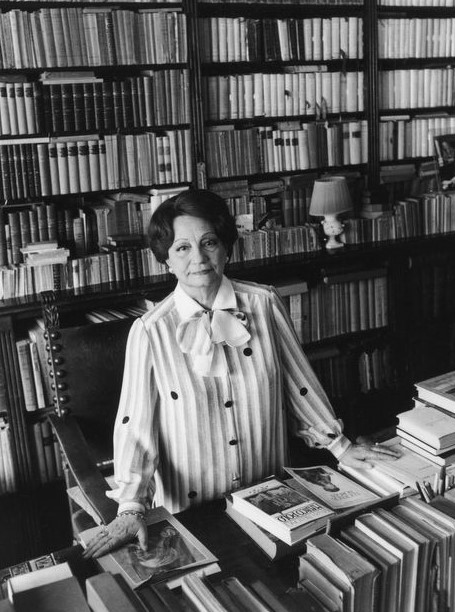Born in Rome to an aristocratic Piedmontese family, Maria Bellonci née Villavecchia showed a very lively intellect from the years of her youth. In 1928 she married the renowned literary critic Goffredo Bellonci, who was among the early admirers of her writing.
Her first novel Lucrezia Borgia (1939) was inspired by a historical study of the jewels of the noblewoman, and Bellonci immediately proved her ability to tell the great historical figures, and in particular the female figures of the Renaissance, in a refined and intimate way.
Tu, vipera gentile (1972) is a literary experiment in which three different short stories explore the delicate area where power crosses the boundary of legality in the Renaissance.
Taking the start from an accurate study of historical facts, she was able to create deeply human and modern characters such as the Marquise Isabella d’Este from Rinascimento privato (1985) – her masterpiece and a cultured and intelligent historical figure, to whom Bellonci managed to instill life and credibility by drawing on her own personal sufferings. In 1986, the year of her death, this novel was awarded with the Premio Strega.
After her first novel, Maria Bellonci carried out an important activity as a cultural promoter: her living room saw the so-called “Sunday friends” gather to discuss art and literature, and from such meetings the Premio Strega was born in 1947 and soon became the most prestigious Italian literary prize.
In the second part of her life, marked by painful mourning (she lost her husband, two brothers and some of her closest friends, including Elsa Morante), Bellonci found refuge in literature by publishing many novels and writing some of her most sublime pages.
